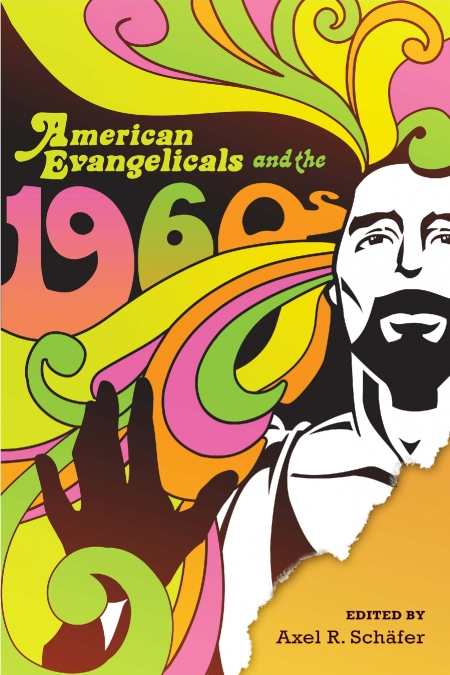American Evangelicals and the 1960s
Essays illustrate the presence of evangelical Christians on the side of social transformation during the turbulent 1960s.
In the span of twelve essays, American Evangelicals and the 1960s works to debunk the claim that the contemporary rise of Christian evangelicalism should be understood as backlash against the social upheavals of the 1960s. On the contrary, editor Axel Schafer argues, evangelism was never as dormant, or as monolithic, as current critiques of it seem to presume. Rather, evangelicals have always had a strong, if under-acknowledged, presence in American cultural and political life. They should not, historian Paul Boyer argues, be thoughtlessly conflated with the religious right, though they’ve trended toward Republican candidates in recent decades. Indeed, explorations of the “long 60s,” a period ranging from the 1950s through the 1970s, actually indicate a strong evangelical presence in areas often thought of as belonging to the left.
Though the term “revolution” is often viewed as polarizing, religious historian Eileen Luhr shows that it was adopted by the decade’s evangelicals, too, in order to encourage inner transformation over social transformation, as well as missionary over military interventions abroad. Professor Steven Miller reveals that evangelicals, if not entrenched in civil rights as a social movement, remained vocally in favor of racial equality throughout, if they were prevented from embracing legal changes because of persistent antiliberalism.
Meanwhile, Cambridge University fellow Andrew Preston’s entry on evangelical responses to Vietnam indicates early Billy Graham encouraged support but shows that such support for the war waned as its human costs became more obvious. Preston’s piece reemphasizes the diversity of evangelical responses to all of the challenges of the ‘60s, as does Daniel Williams’ chapter on evangelical approaches to evolving ideas about sex, from feminism to homosexuality, topics which may have polarized Americans along ostensibly religious vs. secular lines.
Professor David Schwartz highlights the growth of the evangelical left, which developed ideas of holistic, communal transformations beyond earlier emphases on individual, inward rebirth. He shows that evangelicals have been active in fights against poverty, inequality, and war, from the “long 60s” onward.
While religious studies have been wont to view the events of 1960s as secular liberal challenges to the status quo, perceived affronts to which a growth in religious conservatism has been a response, these essays show that such black-and-white distinctions don’t suffice. The book indicates, rather, strong evangelical involvement in all the decade’s areas of change, disrupting the notion that theologically conservative Protestants were a static faction in its midst. As such, the book aptly moves conversations surrounding modern evangelism beyond generalities, and encourages more thoughtful considerations of what religious conservatives were actually thinking and doing during America’s great decade of social transformation.
Reviewed by
Michelle Anne Schingler
Disclosure: This article is not an endorsement, but a review. The publisher of this book provided free copies of the book to have their book reviewed by a professional reviewer. No fee was paid by the publisher for this review. Foreword Reviews only recommends books that we love. Foreword Magazine, Inc. is disclosing this in accordance with the Federal Trade Commission’s 16 CFR, Part 255.

